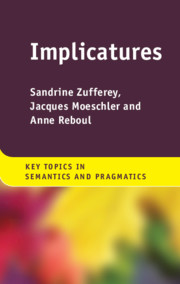Naming and Indexicality
How do words stand for things? Taking ideas from philosophical semantics and pragmatics, this book offers a unique, detailed, and critical survey of central debates concerning linguistic reference in the twentieth century. It then uses the survey to identify and argue for a novel version of current 'two-dimensional' theories of meaning, which generalise the context-dependency of indexical expressions. The survey highlights the history of tensions between semantic and epistemic constraints on plausible theories of word meaning, from analytic philosophy and modern truth-conditional semantics, to the Referentialist and Externalist revolutions in theories of meaning, to the more recent reconciliatory ambition of two-dimensionalists. It clearly introduces technical semantical notions, theses, and arguments, with easy-to-follow, step-by-step guides. Wide-ranging in its scope, yet offering an accessible route into literature that can seem complex and technical, this will be essential reading for advanced students, and academic researchers in semantics, pragmatics, and philosophy of language.
- Provides a detailed and unique survey of the literature on linguistic reference in semantics and philosophy of language
- Introduces clearly some technical semantical notions, theses, and arguments, step-by-step using ordinary-language explanations
- Uses the survey as a whole to identify and argue for a novel position in logical space
Product details
February 2024Paperback
9781108449687
296 pages
216 × 140 × 16 mm
0.372kg
Not yet published - available from February 2025
Table of Contents
- Introduction
- 1. Descriptivism
- 2. The Referentialist Revolution
- 3. Three Puzzles Arising from the Rigidity Thesis
- 4. Varieties of Descriptivist Responses
- 5. Two-Dimensionalism
- Conclusion.




